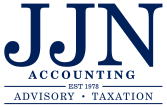Overview of Directors There are many different types of directors, such as executive and non-executive directors, managing director, independent directors, shadow directors, alternate directors, de facto directors, and nominee directors. In this article, we will address directors of Australian small-medium companies, who are registered as Office Holders with the Australian Securities and Investment Commission (ASIC), often referred to as De Jure Directors, especially in the UK and US. As a director, you must govern a company on behalf of the shareholders and ensure that a company operates at the highest possible standards and complies with the relevant governing legislations. Australian companies are primarily governed by the Corporations Act 2001 (Cth) and regulated by ASIC. ASIC is responsible for bringing civil or criminal proceedings against companies, the directors, and the...
